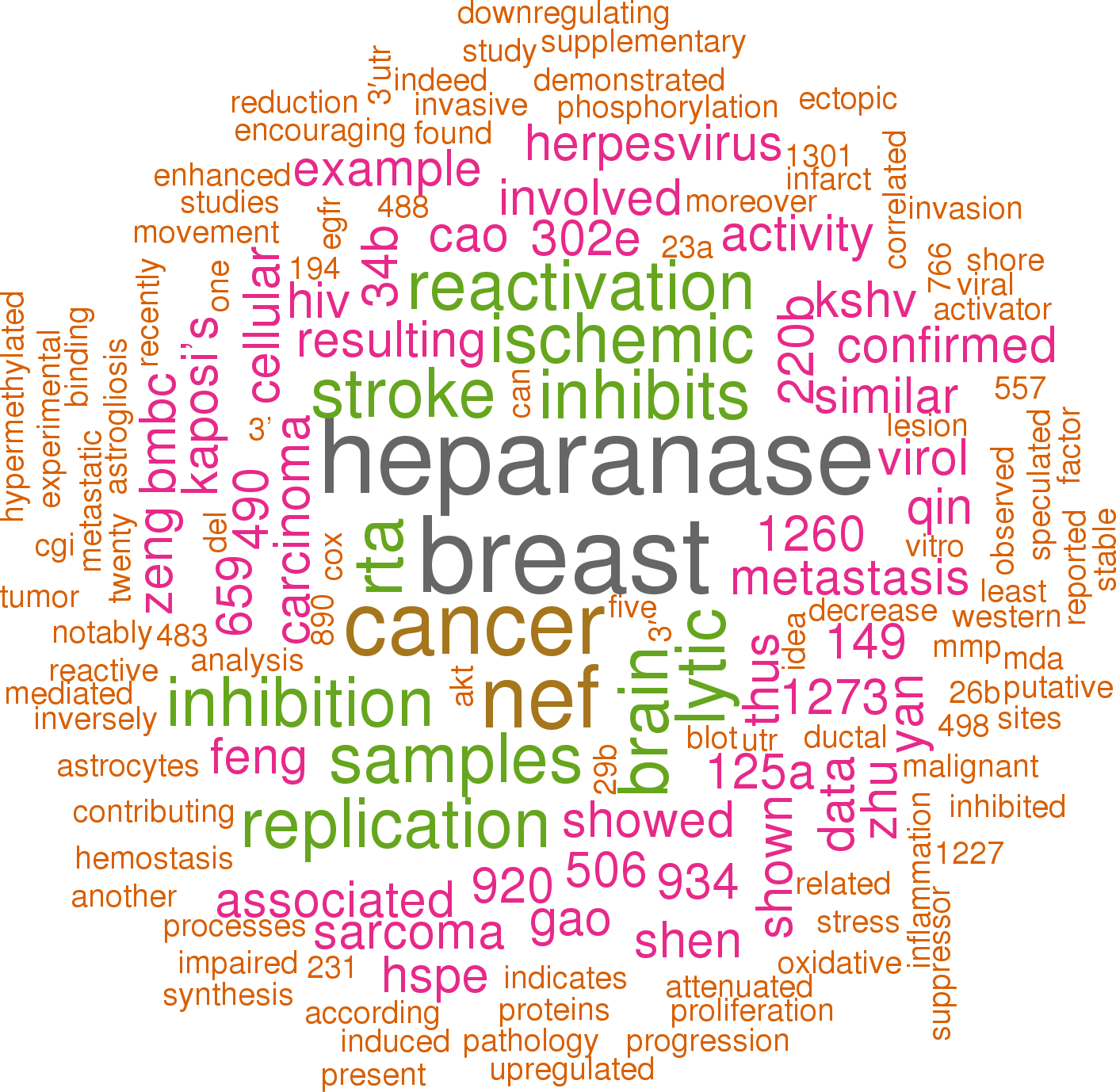Accession
MI0006392
Symbol
HGNC:
MIR1258
Description
Homo sapiens
hsa-mir-1258 precursor miRNA mir-1258
Gene
family?
family?
RF03863;
mir-1258
Summary
Caution, this is an AI generated summary based on literature. This may have errors. ?
hsa-mir-1258 is a cellular microRNA that has been implicated in the regulation of viral infection and cancer progression. It has been observed to inhibit the reactivation of Kaposi's sarcoma-associated herpesvirus (KSHV) from latency, suggesting a role in controlling viral infections [PMC7252873]. Additionally, hsa-mir-1258 downregulates heparanase (HPSE) protein levels, which is associated with restricted bone marrow-derived breast cancer (BMBC) cell invasion [PMC7252873]. This microRNA is also involved in the regulation of tumor microenvironment and metastasis, as it has been identified as a tumor suppressor in breast cancer [PMC9816852]. In the context of KSHV infection, hsa-mir-1258 expression is reduced, which may facilitate an increase in HPSE expression and promote cell survival signaling for the benefit of the virus [PMC7252873]. Moreover, hsa-mir-1258's role extends to other diseases as it was found to be upregulated in postherpetic neuralgia patients' skin [PMC8914318] and involved in gastric cancer progression [PMC6815795]. It also targets RTA 3'UTR leading to reduced KSHV reactivation [PMC4926176] and has been identified as part of a miRNA-based diagnostic prediction model for diseases like bronchopulmonary dysplasia (BPD) [PMC9061009].
Literature search

5 open access papers mention hsa-mir-1258
(15 sentences)
(15 sentences)
Sequence
400
reads,
3
reads per million, 35 experiments
cuguggcuuccacgaccuaauccuaacuccugcgagucccuggAGUUAGGAUUAGGUCGUGGAAgccacagga
((((((((((((((((((((((((((((((...........))))))))))))))))))))))))))))))..
((((((((((((((((((((((((((((((...........))))))))))))))))))))))))))))))..
Structure
-- ugcg cuguggcuuccacgaccuaauccuaacucc a |||||||||||||||||||||||||||||| g gacaccgAAGGUGCUGGAUUAGGAUUGAgg u ag uccc
Annotation confidence
Not enough data
Do you think this miRNA is real?
Genome context
chr2: 179860836-179860908 [-]
Disease association
hsa-mir-1258 is associated with one or more human diseases in the Human microRNA Disease Database
| Disease | Description | Category | PubMed ID |
|---|
Mature hsa-miR-1258
| Accession | MIMAT0005909 |
| Description | Homo sapiens hsa-miR-1258 mature miRNA |
| Sequence | 44 - AGUUAGGAUUAGGUCGUGGAA - 64 |
| Evidence |
experimental
Illumina [1] |
| Database links |



|
| Predicted targets |



|
References
|



